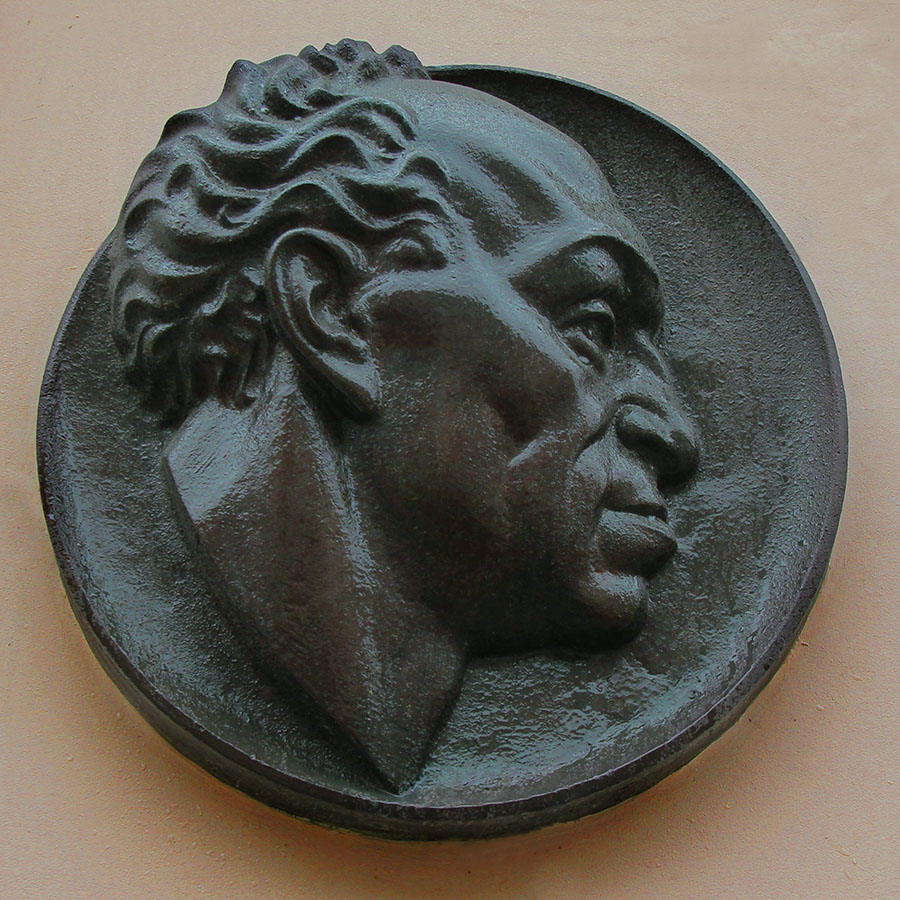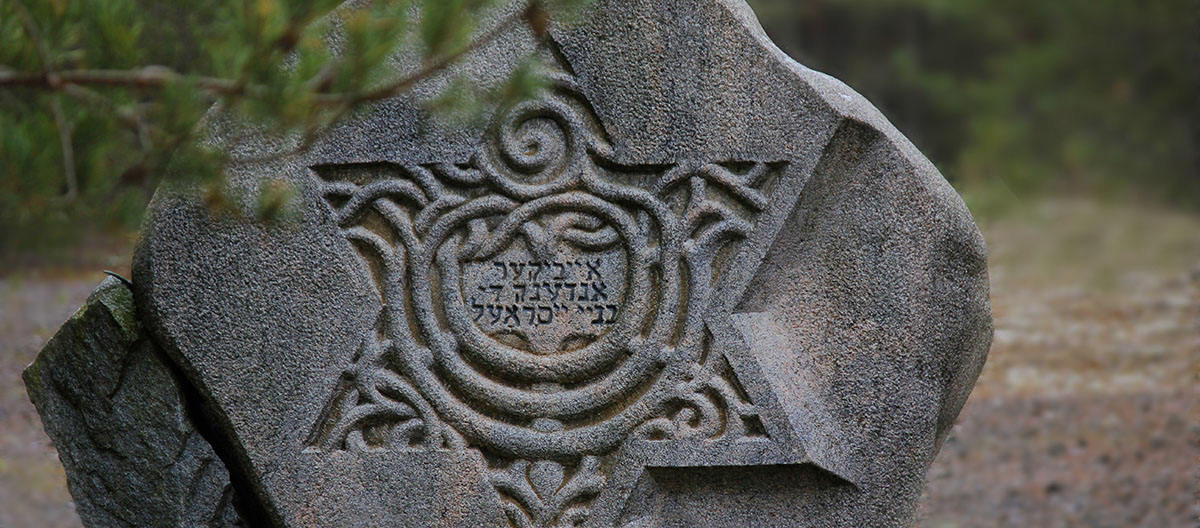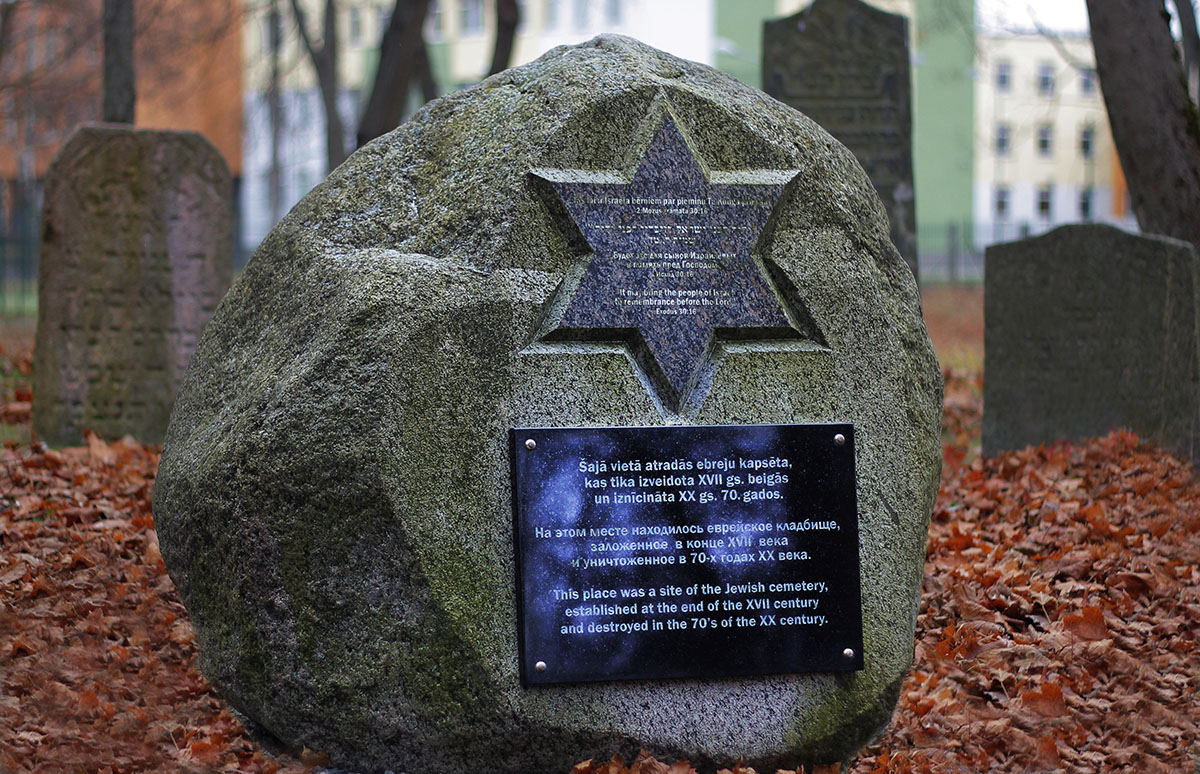Baltic Jewish Studies

In 2019 “Learn Russian in the EU” is offering a new academic program in Baltic Jewish Studies at Daugavpils University. It will be offered as both summer and semester-length courses of study.
All program courses will be taught in English. Russian-language courses may be added as electives during semester-length programs.
Program coursework will include academic excursions to Riga and Vilnius.
Three ECT credits will be granted upon successful completion of each course. Finalized course syllabi will be available in spring 2019.
No visa is required to study in Latvia for citizens of the United States, Canada, European Union member states, and many other countries.
Please send your inquiries to [email protected].
Jewish Daugavpils
Since the 19th and early 20th centuries, Daugavpils (also known at various times as Dvinsk, Dinaburg and Dünaburg) was an important regional center of Jewish cultural and spiritual life. Prior to World War I, Jews comprised approximately 50%, or 55, 000, of Dvinsk’s total population.
Prominent Jewish natives and residents of Dvinsk have included:
- Religious thinkers Meir Simcha ha-Kohen, Yosef Rozin (the Rogatchover Gaon), and Abraham Isaac Kook (HaRav, the first Ashkenazic Chief Rabbi of modern Palestine).
- Solomon Mikhoels, Artistic Director of the Moscow State Jewish Theater and Chairman of the Jewish Anti-Fascist Committee during World War II.
- Mark Rothko, abstract expressionist painter.
- Eliezer Ben-Yehuda, a Hebrew lexicographer, who drove the revival of the Hebrew language.
- Isser Harel, Director of the Mossad (Israeli intelligence agency).
- Oscar Strok, composer, also known as the“King of Tango.”
During the German occupation of Latvia, the overwhelming majority of Daugavpils Jews and those of neighboring regions were relocated to the Daugavpils Ghetto. Over 15,000 were killed in the Holocaust.

Courses
The Jews of Latvia
- This course will examine the history of the arrival and life of Jews in the territory of Latvia. Students will work with primary sources. Classes will include excursions around Jewish Riga as well as work with the exposition and archives of the Museum of Jews in Latvia.
The Jews of Lithuania
- This course will examine the history of the arrival and life of Jews, including the Litvaks, in the territory of Lithuania. Students will work with primary sources. Classes will include excursions around Jewish Vilnius and as well as work with materials at the National Library of Vilnius.
Jewish Stereotypes in Latvian Cultural Space
- This course is based on field research conducted on the territory of Latvia from 2011 to the present. It has yielded a rich body of material reflecting a diversity of opinions and impressions the local inhabitants – research participants – have about their Jewish neighbors and reflect the social, ethnic, religious diversity of the region. Jewish stereotypes are classified according to basic myths. During the course, students will have the opportunity to work with the study’s findings and acquire a familiarity with field research methodology.
Russian-Jewish Literary Phenomena
- This course considers Russian-Jewish literature as one phenomenon in the multilingual body of Jewish literature. Key concepts include: Russian Jews as a subethnic group; language and national identity, and Jewish self-consciousness in literature. Russian-Jewish literature is considered in opposition to Russian literature, but one that uses Russian language as an instrument of communication to its readers. Russian-Jewish journalism is considered as an early stage of literary development. The phenomenon of Russian-Jewish literature is based on the literary works of Vladimir Zhabotinskii, Friedrich Gorenstein, Efraim Sevela and Grigorii. Kanovich. During the course students will work with literary texts (in the original and in translation).

Jewish Texts in Eastern European Culture
- This course is based on a theoretical understanding of Jewish texts as an aggregate of Jewish themes, imagery, motifs, and textual allusions within various artistic disciplines, including literature, painting, music, and cinema. An analysis of Jewish texts permits discussion of Jewish perceptions within non-Jewish cultures within various historical periods and European national groupings. These texts reveal the self-perceptions of Jews as both “outsiders” and “insiders” – as a reflection of existing ethnic myths and stereotypes on one hand, and as the active citation of Jewish traditions as cultural symbols on the other. The course includes a practical analysis of literary and cinematic primary source materials and work with reproductions.
Typologies of anti-Semitism and anti-Semitism in the Modern Baltic Region
- Taking an historical perspective, this course will consider the emergence and genesis of the basic types of anti-Semitism (ancient, Christian, social, and racial) and the factors influencing ideological change. Primary emphasis will be placed on the relationship between Jews and non-Jews in modern and recent history and the paradigm shift of anti-Semitism in the process of “de-sacralizing” social and political life in the countries of Eastern Europe and the Baltics. Special attention will also be given to the particular manifestations of anti-Semitism in Latvian space, including the “Teetotaler” movement, ecological anti-Semitism, and intellectual anti-Semitism. In addition, the course will address the influence of anti-Semitic ideology on political processes in the Baltics in the 20th and 21st centuries as well as the expression of anti-Semitism in contemporary Latvian political and social discourse.
Representations of the Holocaust
- This course will consider the history and national memories of the Holocaust. Lectures and seminars will examine various media representations of the Holocaust and evaluate their relative strengths and weaknesses as practical instruments of critical social and moral discourse. This approach will allow course participants to theorize about the extent to which a supranational discourse is feasible within a nation’s historical memory.
Jewish Identity and Ethnography in Latvia
- This course will be taught in conjunction with Jewish Stereotypes in Latvian Cultural Space. Its primary focus is on the distinctive view Latvian Jews hold about their identity, culture and the peace process. Jewish ethnography on the territory of Latvia will form a separate area of inquiry using sources from the Museum of Jews in Latvia and archival materials from the Latvian National Library.

